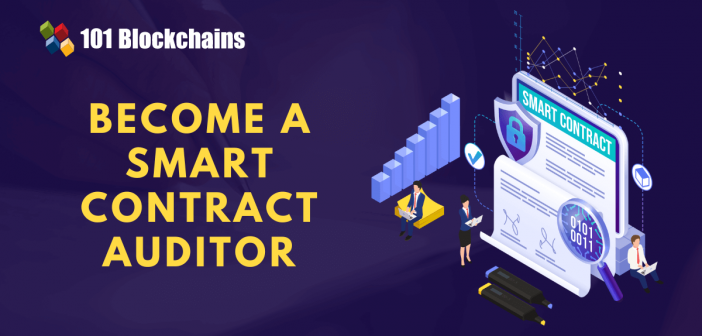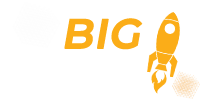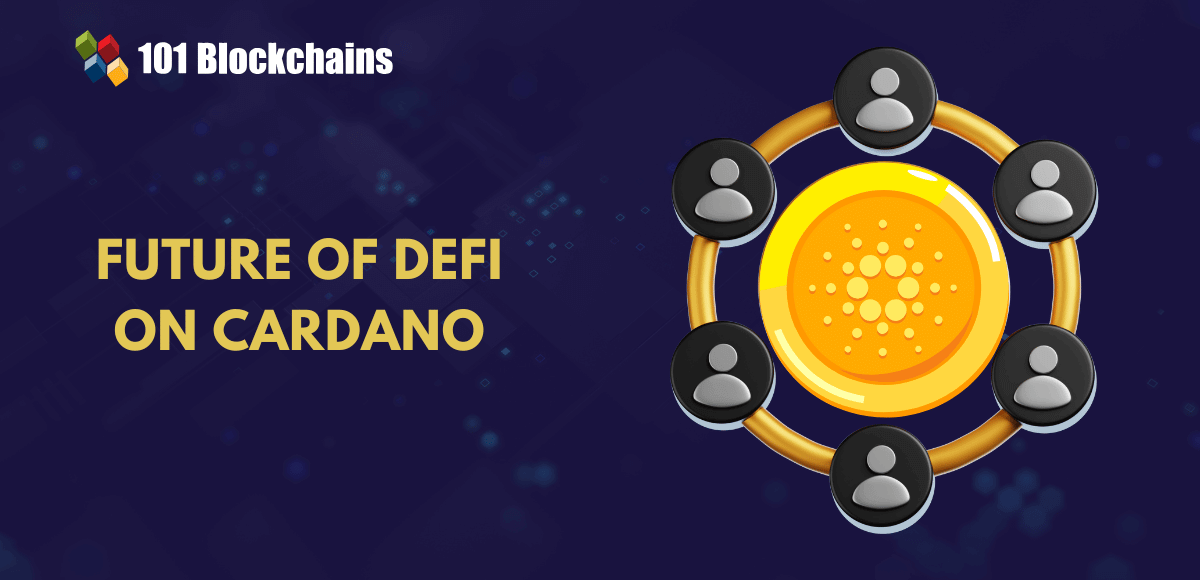Learn how blockchain truly works, master key definitions, and uncover what makes smart contracts so "smart." Dive into the fundamentals, gain valuable insights, and start your blockchain journey today!

- Solidity & Smart Contracts
James Howell
- on December 01, 2022
How to Become a Smart Contract Auditor?
Cryptocurrencies and blockchain-based applications have been garnering considerable levels of global attention in recent times. Blockchain changed the way people exchanged information and conducted financial transactions while granting autonomy to users. Smart contracts work as one of the core technologies underlying such applications. Do you want to become a smart contract auditor and explore lucrative career prospects in blockchain?
You must be wondering about the need for a smart contract auditor in developing blockchain applications. It is important to note that smart contracts feature code, which describes the transaction they have to execute. However, errors by developers in scripting the smart contract code could expose vulnerabilities. Therefore, the demand for smart contract auditors has been increasing profoundly in recent times, particularly for Ethereum, the holy grail of smart contract development.
You can become an Ethereum smart contract auditor and capitalize on the demand for smart contract audits for career development. The following post offers you a guide to building your career as a smart contract auditor. You can learn about the responsibilities of smart contract auditors, the skills required for the role, and the financial benefits expected in the job. In addition, the post would also outline the ideal steps for building your identity as a professional, smart contract auditor.
Curious to understand the complete smart contract development lifecycle? Enroll now in the Smart Contracts Development Course!
Significance of Smart Contract Audits
Before you start searching for the top smart contract audit companies to land a job, you need to understand the significance of smart contract audits. It is the process of reviewing the smart contract code to identify security vulnerabilities, errors, and bugs. Smart contract audits serve a crucial role in developing and deploying smart contracts through early identification of vulnerabilities in the code. As a result, audits can prevent the loss of user assets or data in any type of attack.
The scale of cryptocurrency threats has been growing consistently, with almost $3 billion lost to crypto theft in 2021. Most important of all, almost 69% of the hacks in DeFi have been attributed to smart contract vulnerabilities. Attacks on smart contract security could result in damage to the reputation of blockchain projects. Therefore, smart contract audits have emerged as an inevitable necessity for consistently reviewing the code to facilitate the security of projects and the assets of users.
Want to understand the importance of smart contract audits? Check out the Smart Contract Audit Presentation Now!
What is a Smart Contract Auditor?
The journey of becoming one of the best smart contract auditors always starts with a clear definition of the role. A smart contract auditor is a security professional responsible for the manual analysis of smart contracts alongside deploying smart contract audit tools for identifying vulnerabilities in the code. Auditors work towards ensuring that the smart contract has been implemented with the best standards of security. As a smart contract auditor, you need a comprehensive understanding of programming and the working of blockchain technologies.
Responsibilities of Smart Contract Auditors
The confusion regarding smart contract auditor jobs can be quite detrimental to the aspirations of beginners in this field. What do you have to do as a smart contract auditor? A clear answer to this question is evident in the responsibilities of smart contract security auditors. When you know your responsibilities for a specific job, you are more likely to find out the skills required for the job. Here is an outline of the distinct responsibilities of smart contract auditors.
Build your identity as a certified blockchain expert with 101 Blockchains’ Blockchain Certifications designed to provide enhanced career prospects.
-
Collecting Code Specifications
The foremost responsibility of smart contract auditors points to the assessment of a smart contract project’s documentation. The evaluation of project documentation could help in developing a comprehensive understanding of the project. You can learn about the use cases, design, and architecture of the smart contract.
The responsibilities of an Ethereum smart contract auditor, in this case, would also focus on ensuring collaboration with the project team. As a result, the auditor could develop a comprehensive understanding of how the contract works and identify the intended functionalities of different parts of its code.
-
Assessment of Code for Vulnerabilities
The next important addition to the responsibilities outlined by smart contract audit companies would focus on the assessment of the smart contract code. Smart contract auditors have to check the smart contract code line by line and compare it with a list of common vulnerabilities expected in smart contract code.
How do auditors evaluate the code against standard vulnerabilities? Auditors have to implement certain common attacks on the smart contract code to identify the impact. As a result, auditors could determine the severity of code vulnerabilities and chart the potential course of action for addressing the smart contract issues.
-
Testing
The responsibilities of smart contract auditors also emphasize testing, which helps in the precise identification of code errors and bugs. Auditors can implement unit testing or integration testing, depending on the scale of assessment. For example, unit testing could serve as useful for targeting specific functions.
On the other hand, integration testing could offer a broader scope for testing alongside supporting tests for larger volumes of code. If you want to become a smart contract auditor, you must have fluency in automated and manual testing for checking projects. Auditors can employ manual and automated testing approaches together for testing smart contract codes.
Manual testing is ideal for cases where automated tools fail to identify the context of the assessment or developer objectives. Manual auditing teams account for all specifications of the code design and identify whether the code works according to the intended objectives. Auditors could notify the development team when they identify any bug, alongside offering recommendations on fixing the problems.
Automated testing is also one of the notable responsibilities in smart contract auditor jobs for identifying smart contract security vulnerabilities. Automated smart contract testing utilizes special software for the identification of inputs and outputs of a project. As a result, auditors could monitor the outcomes of different processes, thereby enabling the auditing team to locate common setbacks. The common automatic audit tools include Smart Check, Manticore, Solium, and many others. Most important of all, fluency in automated testing can help you resolve the concerns of repetitive tests while focusing on complex issues.
The basic objective of testing in the responsibilities of smart contract auditors is the verification of security issues, which can affect the smart contract in the long term.
-
Reporting
The final addition to the list of responsibilities for smart contract auditors would refer to reporting. After the audit process is complete, the auditors must work on developing a detailed report for providing specifications of the assessment. Auditors have to create a vulnerability report before publishing the final audit report.
The vulnerability report includes an outline of the identified code vulnerabilities and the recommended actions for resolving the issues. On the other hand, the final audit report outlines the actions taken to address the smart contract security concerns. In addition, the audit report would also outline the course of actions to follow in the future.
You might also be interested in 10 Best Tools For Smart Contract Development
Steps to Become a Smart Contract Security Auditor
The clarity regarding the importance of smart contract security audits and the outline of professional roles and responsibilities of auditors help you understand the expectations from auditors. Now, you must be eager to find out how to become a smart contract auditor and capitalize on available opportunities. The outline of a smart contract auditor’s responsibilities offers an impression of the skills you need for the job. Here is an outline of the mandatory steps you need to follow to become a smart contract auditor.
-
Programming Knowledge
One of the most basic skills required for smart contract audits is programming. How will you audit smart contract code if you don’t know how to read it? As a matter of fact, programming skills are a mandatory prerequisite for becoming a smart contract auditor. Programming skills could help you understand the syntax of the smart contract effectively alongside the semantics associated with individual instructions in the code.
Without coding expertise, you are most likely to experience considerable trouble in making sense of smart contract code. It is important to note that the best smart contract auditors are generally good developers. Coding skills are one of the hardest requirements for landing a smart contract auditor job.
The ideal choice to start developing programming skills would be to learn JavaScript. It is one of the most versatile and beginner-friendly languages and helps you learn the necessary skills for audits. Interestingly, your programming skills can serve as a backup plan if you change your intentions of becoming an auditor. Coding skills can easily help you transition into the role of back-end, front-end, or smart contract developer. On top of it, the similarity of JavaScript syntax to that of Solidity serves credible advantages for all learners.
Want to get an in-depth understanding of Solidity concepts? Enroll now in the Solidity Fundamentals Course!
-
Ethereum and Solidity
The second step in the journey to becoming a smart contract auditor emphasizes knowledge of Ethereum and Solidity. Ethereum is the most popular blockchain platform for developing smart contracts, and Solidity is the programming language that helps in achieving the objective.
You must explore ETH documentation to learn about its design and how it favors smart contract development. However, theoretical knowledge could only get you to a certain distance in your career as a smart contract auditor. Therefore, you need to start learning Solidity in practice, alongside the concepts of ETH security, by using CTFs or Capture the Flags.
CTFs or war games are unique and interactive security challenges where you would have to write smart contracts to expose a vulnerability in code. Some of the examples of CTFs for learning about Solidity and Ethereum smart contract security include Damn Vulnerable DeFi, Capture the Ether, and Ethernaut.
However, an aspiring Ethereum smart contract auditor must take note of the overlapping challenges with Capture the Ether and Ethernaut CTFs. On the other hand, the vulnerabilities presented in these challenges are generally related to the older versions of Solidity. However, you can also try the more complex and harder CTFs, such as Paradigm’s CTF, to increase your chances of landing a smart contract auditor job.
Want to learn about Ethereum Technology? Enroll now in Ethereum Technology Course.
-
Practical Experience with Smart Contracts
All smart contract audit companies look for professionals with practical experience in smart contract audits. Aspiring smart contract auditors must interact with the most popular and commonly used smart contracts. As a smart contract auditor, you would encounter such contracts, algorithms, and patterns frequently in your career. Therefore, an in-depth understanding of how smart contracts work and their other intricacies can boost your career prospects.
First of all, you need to work with token contracts or token standards, such as ERC20 and ERC721. Subsequently, you need to understand the mechanisms underlying proxies, as Ethereum contracts do not facilitate upgrades. You would have to use proxies for separating storage from logic with popular proxy implementations such as OpenZeppelin Proxy.
The answers to ‘how to become smart contract security auditor’ would also call for an understanding of MasterChef. It is a staking contract where users can deposit liquidity provider tokens and receive rewards through a unique reward algorithm. Some of the other notable smart contracts used today would refer to Compound and Uniswap. The two protocols could offer a practical glimpse into the working of decentralized peer-to-peer lending protocols and Automated Market Maker protocols.
Excited to learn about the critical vulnerabilities and security risks in smart contract development, Enroll now in the Smart Contracts Security Course!
Salary of Smart Contract Auditors
The final aspect of your preparation journey would focus on smart contract auditor salary estimates. Interestingly, you can find two distinct modes of compensation for smart contract auditors, such as fixed and skill-based. Skill-based compensation depends on the severity of the vulnerabilities identified by auditors, while fixed compensation accounts for hours put into audit work.
Start learning Smart Contracts and its development tools with World’s first Smart Contracts Skill Path with quality resources tailored by industry experts Now!
Final Words
The guide to becoming a smart contract auditor offered an effective roadmap for aspiring auditors. You can notice how a smart contract audit could help in resolving the security challenges for smart contracts. The rise of DeFi, NFTs, and many other decentralized applications based on smart contracts has created concerns about smart contract security.
Interestingly, you can build your career as a professional, smart contract auditor at top companies with the right set of skills. At the same time, you must also focus on improving your practical experience by working with different smart contracts. Make the most of new job opportunities in smart contract auditing by developing professional expertise in smart contracts now.
*Disclaimer: The article should not be taken as, and is not intended to provide any investment advice. Claims made in this article do not constitute investment advice and should not be taken as such. 101 Blockchains shall not be responsible for any loss sustained by any person who relies on this article. Do your own research!





